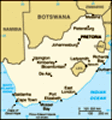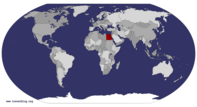Advertisement
Published: August 1st 2009
More than another week has passed, and I’m still loving Stellenbosch.
I’m learning about the difference between traveling and studying abroad. Traveling is about moving around, seeing and experiencing everything I can before the sad day comes too quickly when I have to leave to go back. I guess that still somewhat applies to studying abroad, except that in the midst of the trips to Cape Point, rugby games, hiking, and seeing the “big five” game of South Africa, I am in the process of establishing a life here. I found myself telling friends, “Don’t let me buy that chocolate bar; I have one at home.” Home? When I moved into Concordia D321 at 12:30 am and froze the night away in the fetal position in my bed while staring at the white hospital-like walls, I thought that I would never think of this room as a home. Yet, less than three weeks later, the word is starting to slip. So I guess that’s the difference between traveling and studying abroad: I have a home base, somewhere to go back to between all the hectic activities that traveling involves.
Another part of my life here that has begun is

 Kayamandi kids
Kayamandi kids
Can I take one home, please?the “studying” part of studying abroad. I’ve just completed my second week of classes and am officially registered now (you don’t have to register here until the end of the first two weeks). I definitely have more papers than I would prefer to write and a final in mid-November that is really cramping my travel plans, but I think I’ll get a lot out of all of my classes. One I’m especially excited for is Truth Commissions. For a little bit of background, from 1948 to 1990, a white minority government ruled South Africa and implemented apartheid policies, which were racially based and oppressive to the majority of South Africans. During the negotiations of the transition to democratic rule, it was decided that it was necessary to have a Truth and Reconciliation Commission to investigate the abuses of both the minority regime and the liberation fighters and try to create a balance where justice is served but people still can live in peace together afterward. It’s actually quite a difficult thing to engineer, if you can imagine. South Africa’s is seen as the ideal model, but truth commissions have been used elsewhere during periods of transition. It is a really

 "Informal Settlement"
"Informal Settlement"
The path through an area where all the homes are made of scrap metal.. just be glad it's not raining.interesting class, one that I would never have the opportunity to take in the US.
I had another great weekend last weekend. It was my friend Edward’s birthday on Saturday, so we decided it was an appropriate time to experience one of Stellenbosch’s most famous features: the vineyards surrounding it. We just went to two wineries and taste tested the wine. One of the wineries also has a little cheetah center, which was pretty neat. Afterward, we went to dinner at a classy restaurant. I got a traditional Western Cape dish called bobotie, which was a kind of curried ground beef with a thin quiche-like crust on the top. It was different, but good. We then ate some delicious cake, which is compulsory for birthdays. Sunday I went on another hike, this time on the famous Table Mountain in Cape Town. This one had a trail up it and took one hour to reach the top instead of the strenuous four-hour hike up Stellenbosch Mountain the week before. The view was amazing again; the sky was clear, and we could see for miles. It was so beautiful.
I also got a look at the not-so-beautiful side of this

 Wine Festival
Wine Festival
Notice the blue "I met the first lady" stickers.country for the first time close up when I took a tour of Kayamandi, the township outside Stellenbosch. We took the mini-bus taxi out to Kayamandi, which was an experience in itself, with twenty of us crammed in a small bus. I learned a lot on the tour. Again, some background: one of the apartheid policies was the forced removal of black and colored people from the regular towns and into townships to separate them. (Side note: “colored” is a separate race here—the mix of black and white, descending from the 17th century when it was socially acceptable for Dutch settlers to marry former slaves.) The township itself is then divided: one part where the government built some small houses in the late 1930s for black families from Stellenbosch to move into, and an area where men from the Eastern Cape came without their families to work. This has left a legacy of family problems, since the men would have relations with the women on the other side, and if/when the woman got pregnant, the man would have to choose which family to be loyal to, the one in Eastern Cape or in Kayamandi. I think the statistic was something

 Pizza!
Pizza!
Part of the ISEP group after eating supposedly the best pizza in South Africa. It was pretty tasty.like there are 50% of mothers are single mothers, which shows how this is still affecting it today.
Also, 55% of people live in “informal settlement.” To me, that just seems like a huge euphemism. “Informal settlement” describes the area of the township where the homes are basically shacks made from scrap metal or wood. These homes have no running water of course, so the people go to a communal bathing area, where up to ten families could share one toilet. That’s up to fifty people sharing one toilet. Also, these homes are definitely not weather-proof. I thought about the day I arrived, the rain and how I shivered the entire day; I couldn’t imagine living in one of those homes then. Now there are government programs working on building homes that are pretty nice, but obviously there’s a long waiting list.
Another random fact I found interesting—our guide told us that in since 1990, the population of Kayamandi has more than doubled. I thought, “Wait, isn’t that when they started wanting to get people out of townships?” But he explained to me that there are many rural settlements that were worse than this, so when the restrictions saying exactly where you had to live were lifted, people flocked to better townships. So what I was seeing, as shocking as it was, was not the worst of what people are living like here. Then I took the minibus back to Stellenbosch, walked past all the beautiful buildings of Stellenbosch University, went up to my own room, and laid down in my double bed to do some reading. The difference is drastic.
I will hopefully start volunteering with an after school program there next Thursday. I’m a little disappointed; this past Thursday, I was suppose to meet the other Thursday volunteers at 1:30 to go see the school and learn more about volunteering. I have class until 2:00, and I was assured twice that the bus wouldn’t actually leave until 2:00. I got to the meeting place at 1:45, and they were gone. My flat mate even told them I was coming. I’m going to email the girl who organizes it; if I’m not going to be able to trust that they won’t leave, I need to be finding another volunteer opportunity.
Ending on a more positive note, I’m learning a few Afrikaans words (even though I’m not taking the class), and I’m finding it fun to use them regularly. We were braai-ing the other day with Grant, a student that works in the international office, and some of his friends. They spoke some Afrikaans, and I chimed in a “Ja, neir” (literally “yes, no” and used to express general agreement). He thought I had understood the whole conversation. You can also say just about anything is “lekker” (which means good/cool/awesome/etc). I tried to learn the Afrikaans version of the happy birthday song last weekend to sing for Edward, but I don’t think I’m that advanced yet. I’ll work on it.
Oh, and how could I forget?! Yesterday marked a huge event here in Stellenbosch: the Stellenbosch Wine Festival. It reminded me a little bit of the Varied Industries building at the Iowa State Fair, except that every stand was a different vineyard. Personally, I prefer this to hot tubs and insurance. They had wine tastings and also some great samples of foods or sauces. We even got our faces painted (I had some paw prints down my forehead). It was quite the experience. Also, this happened--
Guy (puts "I met the first lady" stickers on us): The first lady will be here tomorrow!
Me: You mean one of Pres. Jacob Zuma's wives (he has three) is coming here?!
Guy: No, the first lady of WINE (as if I was so silly to think anything else). As in, the first lady to ever make wine or run a winery.
So I actually did not meet the first lady, or even the first lady of wine, but hey, it's a nice sticker.
Advertisement
Tot: 0.09s; Tpl: 0.012s; cc: 8; qc: 50; dbt: 0.058s; 1; m:domysql w:travelblog (10.17.0.13); sld: 1;
; mem: 1.2mb









Michaela
non-member comment
first lady?!
Bahahahaha LOVE it Barley, you had me going the enitre time. That seriously sounds SO cool. You have no idea just how jealous of you I am right now. I've decided that the instant we graduate I'm getting the heck out of the midwest and traveling the world. I want to have experiences like you do. I want to see and experience the things you have. I feel so ignorant and left out here! There's literally an entire world I haven't seen......ugh......I think I'm catching your quarter life crisis.....